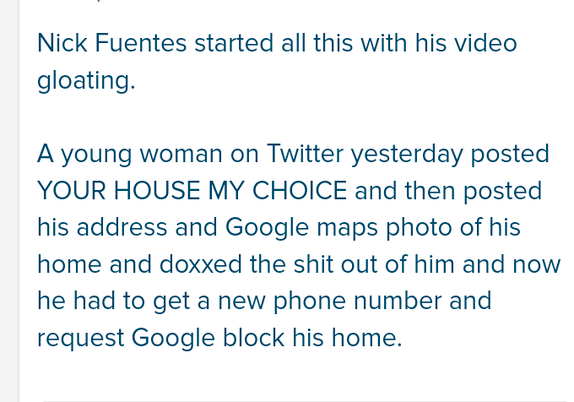this post was submitted on 09 Nov 2024
635 points (94.3% liked)
Antifascism
348 readers
3 users here now
A community to post acts of antifascism and other left-wing activism. Please message a mod if you would like something posted and we can tag you in the post as well.
founded 8 months ago
MODERATORS
you are viewing a single comment's thread
view the rest of the comments
view the rest of the comments


That's a great point. The use of a more indirect shunning methodology is interesting; I feel like it's classic - what was used before the modern point-and-laugh method, but again I worry that it doesn't drive home the message that the behavior is undesirable. It's more something that 2 adults would agree is a scathing commentary on the bad behavior, but a child - who is more impressionable and therefore necessary to teach what not to do - wouldn't understand is meant to be rejection of the behavior. But maybe that's just another facet to the issue - maybe our society has become too reliant on fast, easy-to-understand quips, when we really need to subtly guide it back to the more thoughtful, introspective lexicon of yesteryear.
That's definitely a fair point that it's quite indirect, which I think raises another question - why not just directly call the actions cruel / contemptuous / arrogant or belligerent / whatever else? Do we need to describe the person at all if it's really the actions that we're trying to discourage? Calling someone a slur, while harsh, seems to be perhaps as indirect as the dead hamster metaphor - if the goal is to condemn their choices.
I would say that's exactly what we're doing now, and it's not working. It seems people can live with being called cruel, and maybe even enjoy it. But I think the feeling of being ridiculed is something more fundamentally at odds with a person's self-image, and eats away at their confidence more than other forms of societal rejection.
Yeah, ridicule or insults are generally not very helpful at promoting positive change, unfortunately. If they were useful, we'd tell parents to insult their children as a teaching method. The fact we don't recommend that might imply that ridicule is not great for personal growth. Insults usually only helpful as catharsis for the person using them. More reason to be considerate in choice, in my opinion.
Actual good actions are necessary to promote other good actions. I hope we both can do more good going forward.
I don't think ridicule will change the person being ridiculed for the better - I don't think anything really could until they make the choice to change for themselves, which people rarely have the desire to do. Ridicule is more to quiet people who are displaying bad behavior, incentivizing them to promote it a little less, and to send a message to others who idolize such people that they might want to reconsider who they look up to.
Especially given the events of the last week, that doesn't seem to have worked either, no matter how direct. The ineffectiveness would also explain why Fuentes has now been doxxed.